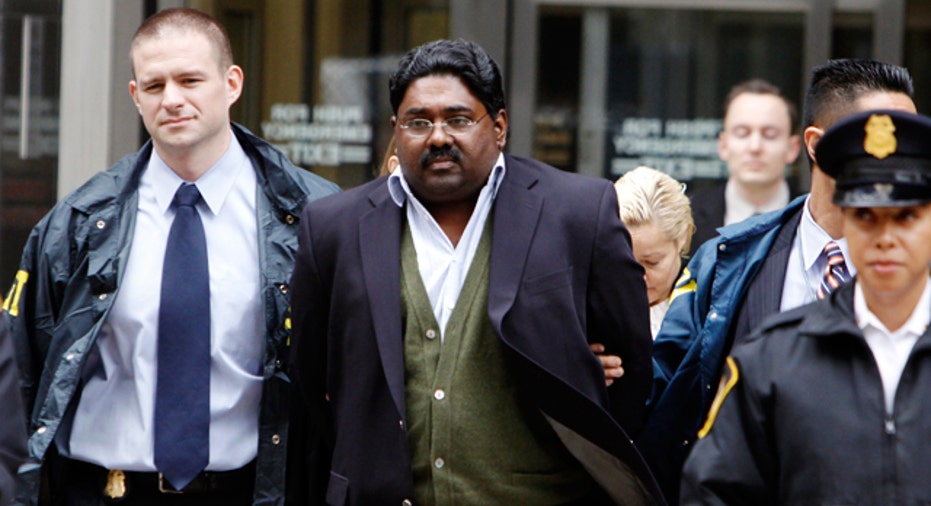Will Insider Charges Make CEOs More Tight Lipped?

Amid allegations that a prominent former Goldman Sachs (NYSE:GS) director tipped off a pal about corporate secrets, there are growing concerns the case could have a chilling effect on the flow of information between management teams and their board members.
If the insider-trading charges against Rajat Gupta, the Goldman director, do make executives consciously (or subconsciously) less willing to share vital information with directors, it would seriously hamper the board’s ability to do its job and could cause pain to stockholders.
However, corporate governance experts believe management teams will see the Gupta situation as an isolated case and continue to keep directors informed about key subjects like acquisitions, financial performance and malfeasance.
“It would be tragic if management used this episode as an excuse to withhold information. It would be highly destructive to shareholder value,” said Charles Elson, a corporate governance professor at the University of Delaware.
According to the Securities and Exchange Commission, Gupta tipped off Raj Rajaratnam, a Galleon Management hedge fund manager, about impending quarterly results at Goldman and a $5 billion investment from legendary investor Warren Buffett.
Rajaratnam faces his own criminal charges as he is the centerpiece of a trial that kicked off earlier this week and has been called the largest insider-trading investigation in a generation. The SEC says Rajaratnam used the confidential information Gupta allegedly gave him to trade on before it became public, generating more than $18 million in illicit profits and loss avoidance in one instance.
Gupta is no stranger to corporate governance as he served on the boards of consumer products giant Procter & Gamble (NYSE:PG) and American Airlines parent AMR Corp. (NYSE:AMR). He did not stand for re-election at Goldman last year and resigned from P&G and AMR in the wake of the SEC suit.
“If the allegations hold up, I’m stunned,” said Ralph Walkling, a corporate governance professor at Drexel University. “I can’t imagine. It’s not only illegal, it’s stupid.”
It’s important to remember a board of directors is elected by shareholders to oversee the company’s management. Board members, who are paid in cash and/or stock, have the power to hire and fire executives, authorize mergers and acquisitions, and institute dividend and compensation practices.
Boards are comprised of both inside directors, who are either employees or stakeholders, and outside directors, who are seen as more independent because they don’t have a stake in the company.
Mark Rifkin, a shareholder rights litigator and partner at Wolf Haldenstein Adler Freeman & Herz, said he believes executives will, at least subconsciously, become more reluctant to share crucial information.
“In the back of a CEO’s mind has got to be, ‘Is someone around this table doing the same thing Gupta is alleged to have been doing?’” said Rifkin.
It’s possible management teams are already less trusting of their boards because of the regulatory push to require companies to increase the number of their outside directors in the wake of a series of scandals a decade ago. That effort has been aimed at enhancing corporate governance and protecting shareholders from CEOs that stacked their boards with tight friends.
“For many, many years it was an insider’s game. Directorships were often bestowed on friends by CEOs,” said Rifkin.
The slightly less cozy relationship between boards and management suggests directors will be less willing to stand by as executives sit on information.
“You can find cases where that’s going to happen or would happen, but in general I don’t think good boards are going to tolerate that,” said Walkling. “If they find they’ve been left out of the loop, they aren’t going to be happy with the CEO.”
At the same time, the charges against Gupta were shocking to many because the alleged actions are hardly commonplace. So long as similar charges don’t soon emerge, management teams will likely see it as a one-off event, not a new trend.
“Boards need to know more, not less -- but everything they learn is to be guarded with discretion,” Bill Bartmann, author of Bailout Riches, wrote in an email. “Execs should continue to keep boards informed, but boards should keep their fiduciary duty and mouth shut.”



















